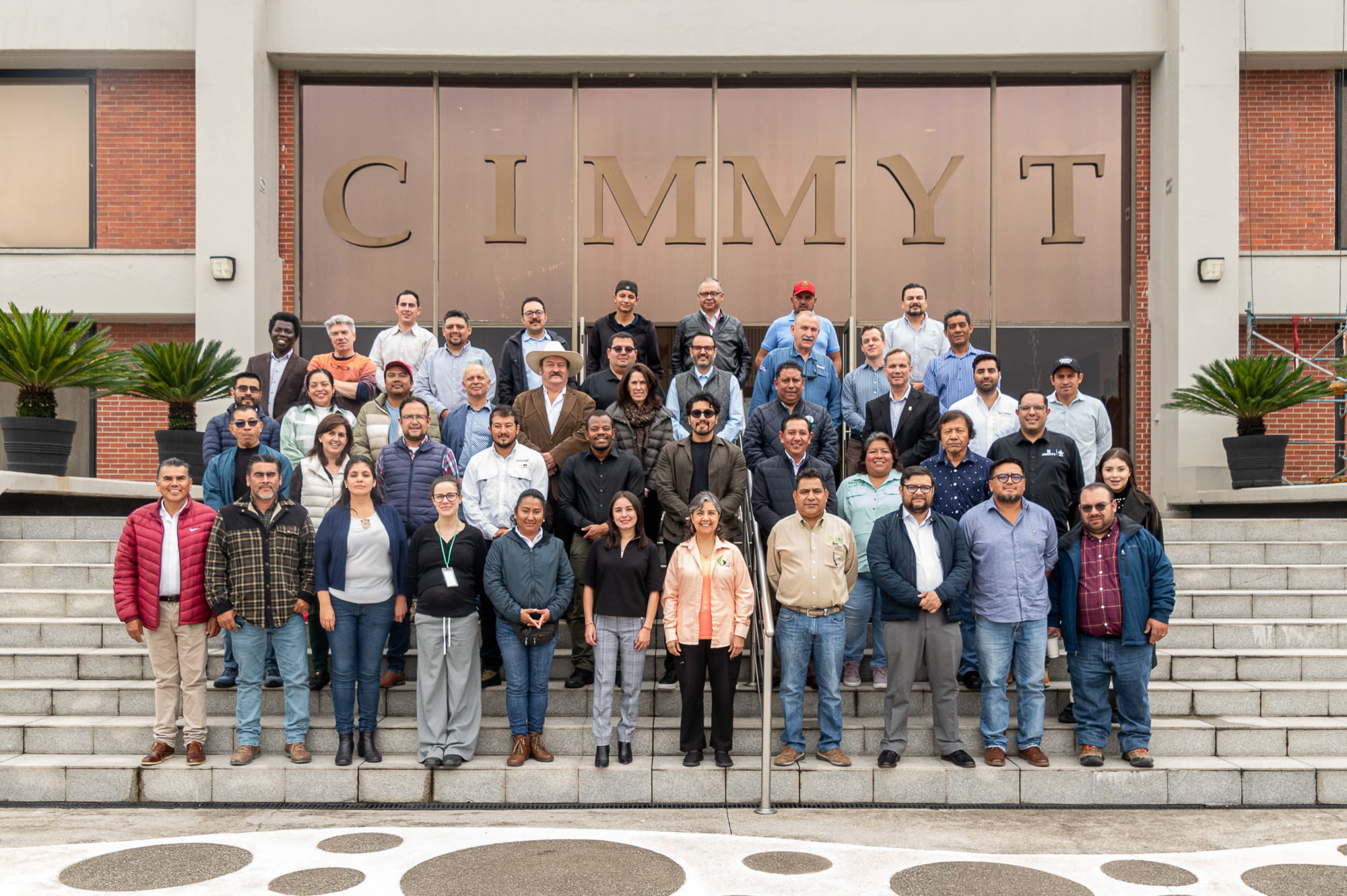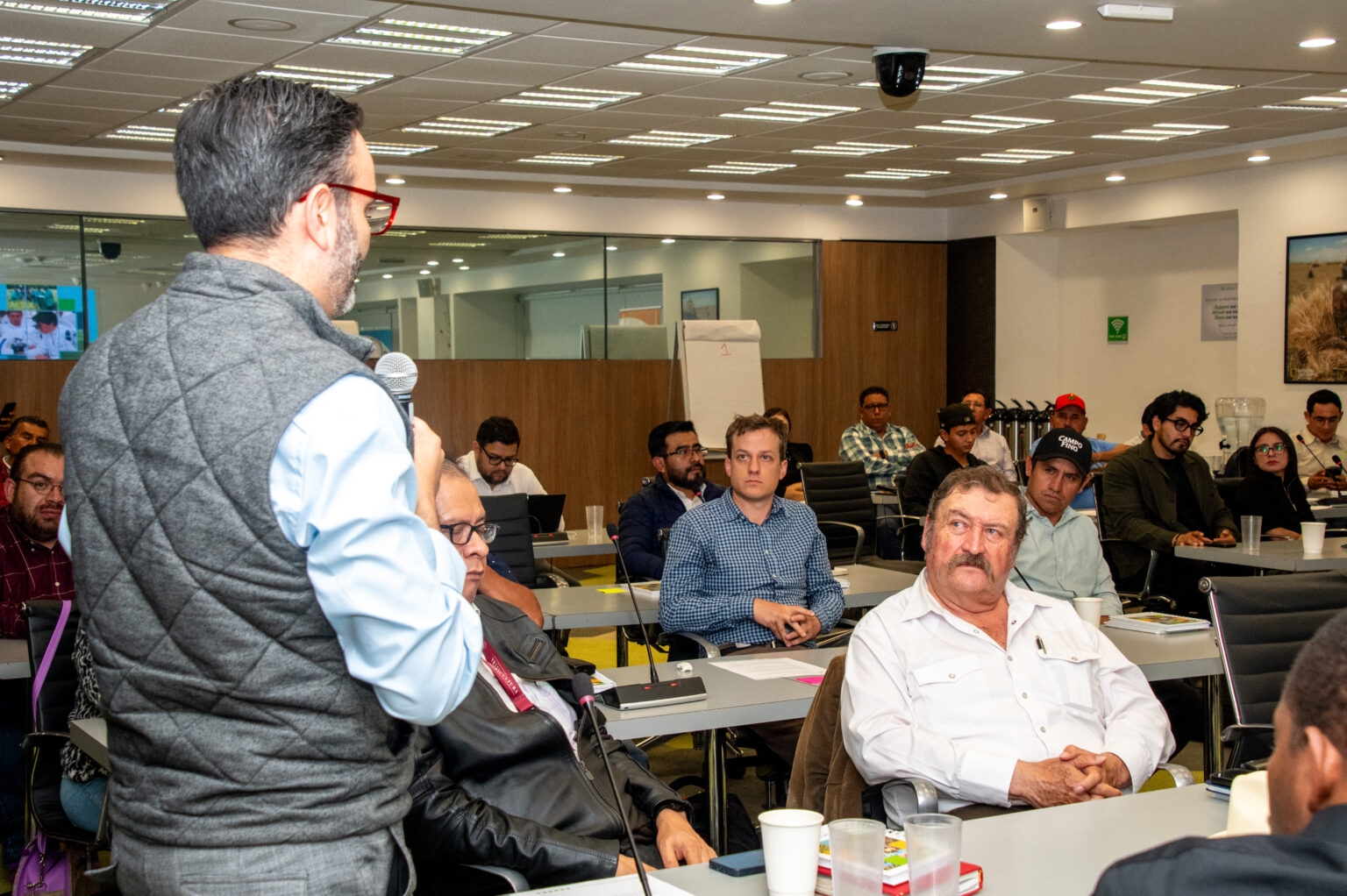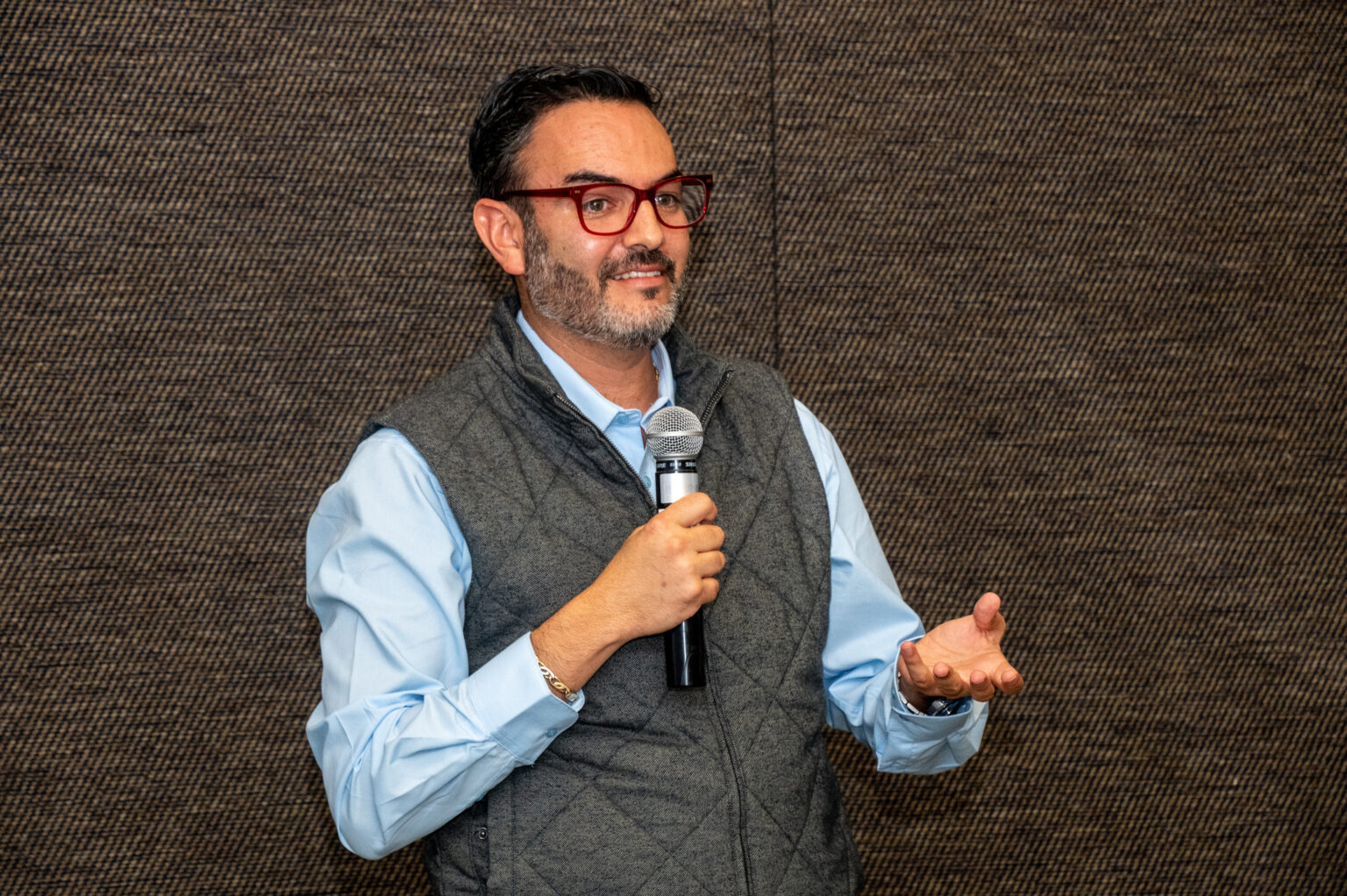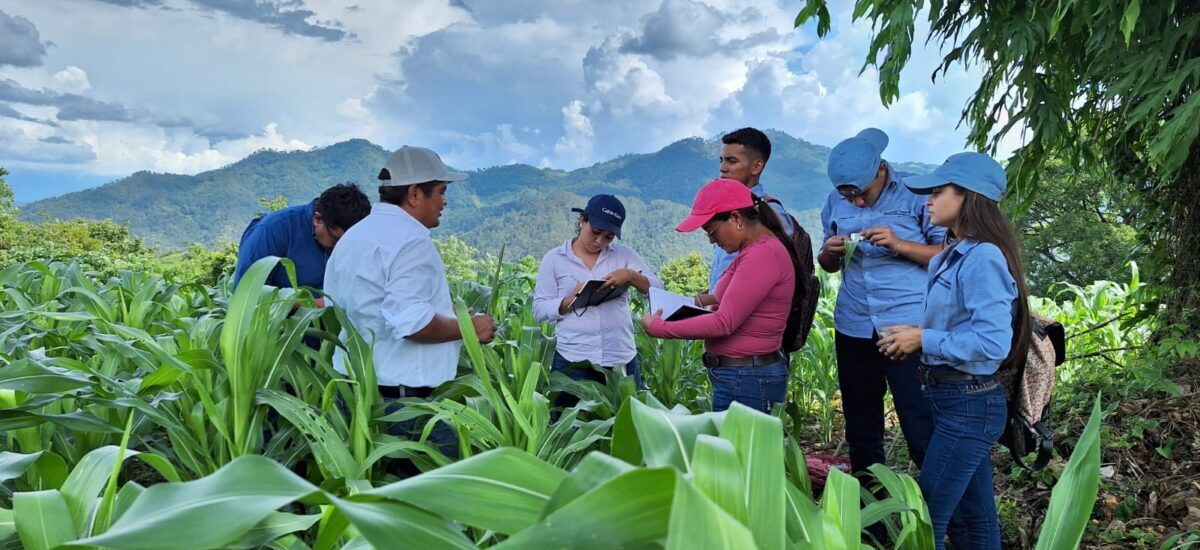
At a critical juncture for Mexican agriculture, marked by water scarcity, the loss of land suitable for traditional crops, and the urgency of adapting to climate change, CIMMYT convened representatives from Mexico’s Ministry of Agriculture, producers, agri-food companies, and scientific institutions for the workshop Dryland Crops: Opportunities for Alternative Crops in the Context of Climate Change.
“The climate is changing, and so are the needs of both the countryside and consumers. If we continue doing the same, we will face the same problems, only intensified. The best time to invest in solutions was yesterday; today is our second-best opportunity,” expressed Kevin Pixley, Director of CIMMYT’s Dryland Crops Program.
The workshop aimed to create a space for consultation and dialogue with various actors to collectively envision what can be cultivated in an increasingly dry and variable future, focusing on options that are both agronomically and commercially viable.
The discussions addressed the challenges faced by regions such as Sonora and Sinaloa, where maize and wheat can no longer be cultivated as before due to water shortages and rising temperatures. Pixley explained that as part of CIMMYT’s 2030 Strategy, a dedicated line of work on dryland crops is being advanced to offer farmers new alternatives adapted to these conditions. Millet, sorghum, chickpea, cowpea, sesame, pigeon pea, and peanut are among the crops with the greatest potential due to their heat tolerance and water-use efficiency. “Today, we do not work with individual crops but with systems. Our commitment is to a more resilient, diverse, and sustainable agriculture,” Pixley emphasized.
From the private sector, PepsiCo shared its vision of the new production challenges. “There are many opportunities, but the challenge is ensuring they do not remain theoretical. We must begin to make them a reality by building a functional ecosystem for all actors, from the field to the consumer,” stated Rita León, highlighting the importance of connecting innovation, profitability, and sustainability.

Beyond the agronomic component, the workshop addressed the challenges of establishing functional value chains, emphasizing the need for accessible seed, progress in genetic improvement processes, and the establishment of market connections that make these crops profitable. “Pigeon pea, for example, is more drought-tolerant than conventional beans and can be integrated without altering consumer dietary culture. The same applies to flour blends that reduce maize use while maintaining or even improving tortilla quality. The options exist: we must validate them with producers and industry,” explained Pixley.
The workshop’s methodology enabled participants to analyze these issues from a territorial perspective by dividing the country into three regions—North, Central-Bajío, and South—to identify the most suitable species and develop differentiated work plans.
For José Ulises, INIFAP researcher, one of the significant challenges is to move beyond reductionist perspectives. “Individual gains are no longer valid here. We must prioritize collective gains if we truly want humanity to continue on a firm path,” he remarked.
Youth participation also brought fresh perspectives. Daniel Cisneros, a farmer and agronomy student, shared his personal experience with innovative practices. “With new practices, we achieved better quality and profitability. Today, I take with me many ideas to continue diversifying in my community,” he said.
The event made it clear that addressing climate change requires a profound transformation in how we produce, market, and consume, and that this transformation is only possible through collective action.

In this regard, the participation of the Government of Mexico through the Ministry of Agriculture and Rural Development was crucial. “We are experiencing a transformation in public policy. Now it is time to build bridges between producers, science, and industry,” affirmed Héctor Arronte, Director General of Value Addition and Marketing at SADER.
The message was clear: it is not about replacing maize cultivation but diversifying to adapt and expand opportunities for Mexico’s countryside.
Alongside Arronte, the event was attended by Veronica Bunge, Director General for Climate Change in Priority Areas at SADER; Gisela Osornio, SADER’s Representative in the State of Mexico; and representatives from the General Coordination of Agricultural and Livestock Production, ICAMEX, FIRA, and the General Directorate of Agriculture of the State of Mexico.
CIMMYT’s Commitment
With its global experience and scientific capabilities, CIMMYT will continue promoting this collaborative approach to build solutions grounded in science, data, dialogue, and action.
As Kevin Pixley noted in closing, “We need to create markets that respond to the needs of farmers facing climate change, of the agro-industry, and of consumers demanding better nutrition and ecologically sustainable agriculture.”
And as Candelario Molina, a farmer from Chiapas, wisely stated, what is scientifically proven must also be proven by farmers.
Only by aligning scientific evidence with farmers’ realities can we advance toward agri-food systems that address today’s challenges and sow the seeds of a sustainable future for the next generations.
About CIMMYT
CIMMYT is a cutting-edge, non-profit, international organization dedicated to solving tomorrow’s problems today. It is entrusted with fostering the improvement of the quantity, quality, and reliability of production systems and staple cereals such as maize, wheat, triticale, sorghum, millet, and associated crops through applied agricultural science, particularly in the Global South, by building strong partnerships. This combination enhances the livelihood trajectories and resilience of millions of resource-poor farmers while working toward a more productive, inclusive, and resilient agrifood system within planetary boundaries.
CIMMYT is a core CGIAR Research Center, a global research partnership for a food-secure future, dedicated to reducing poverty, enhancing food and nutrition security, and improving natural resources.
For more information, visit https://www.cimmyt.org.
About the Dryland Crops Program
The Dryland Crops Program (DCP) is part of CIMMYT’s 2030 Strategy, aiming to transform agriculture in semi-arid regions through science, innovation, and multi-stakeholder collaboration. It focuses on key crops for nutrition, climate resilience, and rural income, such as sorghum, millet, peanut, pigeon pea, and chickpea, promoting more sustainable farming systems adapted to climate change.
The program works closely with governments, producers, scientists, and businesses to identify opportunities, improve varieties, strengthen seed systems, and accelerate access to technologies that generate real impact for farmers and consumers.
 Innovations
Innovations 